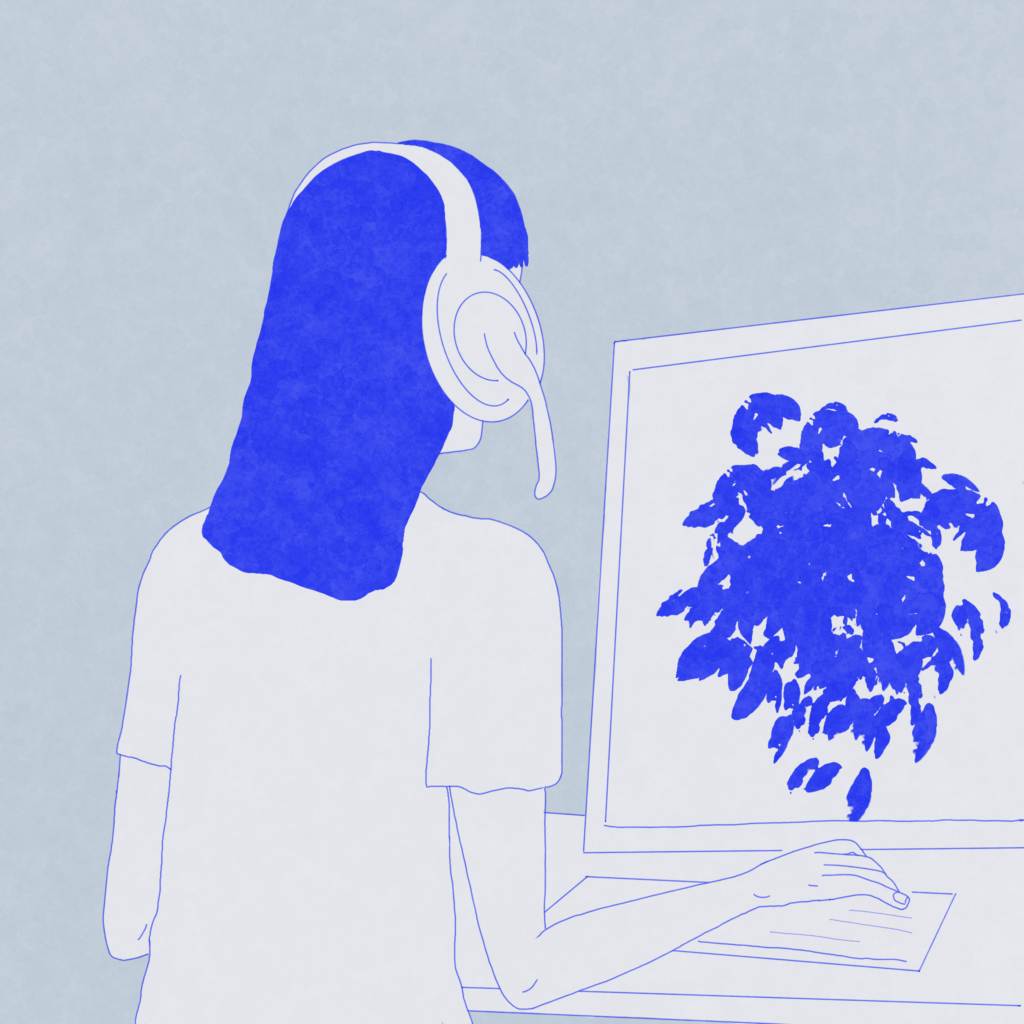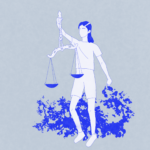VIDEO GAMES BELONG TO GIRLS TOO

Illustration: Argjira Kukaj
If I had to pinpoint a specific moment when I was first introduced to video games, it would be the day my sister and I sat next to our brother while he was playing the iconic video game, “Resident Evil 3”. I remember the old laptop, a small blue laptop with the cooler fan beneath it.
In retrospect, that game might have not been the most ideal choice for a seven or eight year old girl, but I remember that I just had so much fun.
Today, I see video games as something that got me closer to my sister and brothers. The conversations around this topic were never ending in our house. Joking and teasing each other when one of us lost, criticism and tips on how to play the game better, spending nights attached to the computer became routine.
I am fortunate that I had such enjoyable experiences, but later I learned that many other girls did not get this privilege.
The virtual world is a world that is as ruthless as it is welcoming. While most find infinite entertainment in it, women and girls still face exclusion.
Lately, the “deepfake” phenomenon, videos or photos that are manipulated through artificial intelligence (AI) to replace someone’s face or voice in a way that looks very realistic but is not, is being used to exploit and misuse footage of women in digital platforms. This has exacerbated the discrimination and exclusion that women experience in digital platforms.
QTCinderella, a streamer, (someone who broadcasts real-time or pre-recorded media content) who launched her career in the beginning of Covid-19 pandemic, talks about women’s experiences in Reddit. She shares her experience in a video hosted by Youtuber Anthony Padilla titled “The day QTCinderella almost died on stream”.
Reddit is a news platform where users share different content with one another. On this platform, a user could simply look up the name of any streamer with “NSFW” added at the end and millions of results of deepfake pornographic videos show up.
However, it iss not only the famous streamers who face exploitation of their image and encounter vulgar and sexist comments in the digital sphere.
Beckii Whiting, another content creator on Twitch, a platform for live content broadcasting, shares her experience in an article of KINDRED magazine saying that trolls (users who deliberately comment using offensive language) have offended her. She says she received “many comments about her body”.
The objectification and sexualisation of women’s and girls’ bodies is also a concern that often arises when it comes to the inclusion (or lack of thereof) of women in the video game industry, whether it’s in the roles of players or the portrayal of characters within the games.
Numerous characters such as Lara Croft from the “Tomb Raider” video game and Chun Li from the “Street Fighter” series are subjected to sexualization due to their attire and physical attributes. Even the ways in which female characters are created are often over sexualised, reinforcing stereotypes and rigid gender roles and expectations about women and their bodies.
This phenomenon, not only affects the way women are perceived in the digital sphere and the perpetuation of stereotypes, but it can also affect the self-perception of young girls who have just started playing video games.
During a conversation with Era Qena, a former gamer, she pointed out that the way women are portrayed affects them, particularly those who has just started to get into the world of video games. “Why don’t I look like these girls?”, is a question that Qena says young women may ask.
Harassment directed at women and girls goes beyond characters in video games and beyond followers on various online platforms. This reality often makes the statement that simply being a woman or girl online “guarantees” harassment in these spheres believable.
Therefore, this problem is not isolated simply in straming platforms. Even the employment of women and girls in video game companies has exposed them to harassment, sexism, and misogyny. In some companies these seem to be institutionalized.
Several major game development companies have faced lawsuits and allegations related to sexual harassment in their offices. Blizzard Entertainment, the company known for the “Starcraft” game and the whole “Diablo” and “World of Warcraft” series is one of these companies, but not the only one.
Sony was sued by nine women in 2022 for systematic and institutional sexism. Some high ranking exectuives in the Ubisoft company were arrested earlier this year for the same allegations as those made against Sony. Meanwhile, Riot Games, known for the popular game “League of Legends”, in 2021 paid 100 million dollars after two former employees sued the company for harassment and gender discrimination.
Frequent lawsuits shed light on the dark reality for women in the video game industry. However, these cases also show that change seems to be on the horizon, as perpetrators are being exposed and the chain of discrimination is starting to break. Employees are speaking up, they’re reporting discrimination, and they’re denormalizing it. And the demand for a safer environment for women in the virtual world continues to be voiced.
As a girl who still frequents the video game sphere, I believe that as a collective we can do more to address this phenomenon. Exposing a streamer with a considerable amount of followers after the damage is done is not enough. We need to constantly oppose harassment and exclusion through different platforms
And change comes when this battle is not viewed as solely a women’s fight, but as a shared causse for everyone who loves video games. Women deserve to have access to this industry without feeling offended, threatened, or excluded. If we all demand change, then video games will once again become fun. For everyone.
Author: Agnesa Bytyqi


